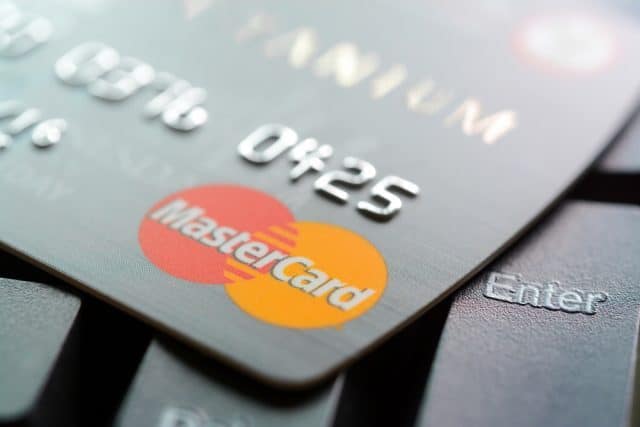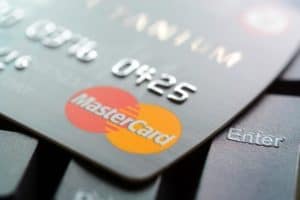TRENDS speaks with Jorn Lambert, Group Executive, Digital Channels in Emerging Payments, Mastercard, about how Mastercard is offering richer experiences to its regional clients and sees massive opportunities in this region that are beyond developed markets.
When it comes to evolving payment technology, how do you look at Middle East region?
Today, consumer patterns are changing at a pace faster than what we have ever witnessed in the last 50 years. These rapid changes will cause a massive disruption, but this disruption is more of an opportunity than a threat. Although, every disruption comes with a threat, in the case of a digital disruption, this opportunity is more prominent and much bigger. Moreover, the opportunity is highly relevant here in the Middle East, as technology has given us a chance to reach consumers as well as merchants in an efficient manner. In this region in particular, we see innumerable opportunities compared to developed markets, with richer experiences and lesser chances of fraud. Our key goal is to include millions of people, who are currently in the cash economy, into a cashless economy that is based on electronic payment solutions.
In the domain of payment technology, which major trends are ruling the industry?
Tokenization is a key trend. Gradually, consumers will start making payments from all types of connected devices such as smartphones, smart watches and connected cars. In this context, Mastercard strongly believes that every connected device has the potential to become a commerce device, and as an industry we need to enable payments in a ‘secure’ way for the entire IoT (internet of things) world. For instance, if I put my card number in my car, in my watch or in my dishwasher, there is a possibility of a hacker getting in there and stealing all that important data.
To make sure this doesn’t happen, Mastercard has invested in tokenization, which means that instead of your 16-digit number, a fake number goes into the phone and in that fake number we have integrated some very clever cryptography, which allows us to verify the authenticity of every transaction you make. This system is so secure that even if someone breaks into your phone, steals the data and makes a transaction, we will be notified immediately, and the transaction will be declined. We expect to see around 30 billion tokens in the next three to five years. The response to tokenization has been immensely positive, and around 1,200 banks have enabled it including banks from the MENA region.
How do you look at big data and AI disrupting your industry?
Big data and AI are major disruptions that the world and this region are witnessing at the moment. As our President and CEO Ajay Banga put it recently at an event, data is the new ‘oil’, as it drives some of the world’s most successful companies. Now, more than ever, it is important to understand that the most valuable piece of data is ‘knowing what people buy’.
Banks have not really monetized artificial intelligence as much they should have. They utilize it for fraud detection or for credit scoring but they haven’t employed it to hyper-personalize consumer services. As an industry, we are investing heavily in artificial intelligence and big data scoring so that our customers – the banks – can effectively cater to their clients’ needs as well as manage frauds.
What is your take on shared economy?
The concept of shared economy is fascinating, and it has blossomed over the last couple of years. Today, Uber and Airbnb are all over the world, along with many other successful sharing models in the market. There is shared economy around clothes, around bicycles, etc. So basically, the concept of shared economy has turned every consumer into a merchant. For us, a merchant in today’s world is someone who has a terminal and who undergoes all the processes that an acquirer does – but this doesn’t work in a shared economy. So, we have been doing a lot of work to see how are we going to adapt to the new economy model, and how to ensure that a consumer who pays can also receive money through same terminals.
There are frictions along the path of online payment. How is Mastercard making it better?
As an industry, there is a huge opportunity for us to bring frictionless payments to our customers. And the reason we have not been that successful so far is because we are putting existing processes into a new space rather than reinventing these processes.
Today, many devices have biometrics and suitability, which combine both the convincing and security aspects, whereas in the past, devices had either of the two. The process for creating this frictionless payment does exist, but the challenge lies in deploying it for millions of merchants and making it available for billions of consumers across the globe. Even though, inconsistency is an issue, we are seeing good progress.
In your industry, what could be the potential hurdles in the path of data monetizing?
Payments data faces many restrictions and in most geographies, you need consumers’ consent before accessing and using it. Technically we don’t have the data, but our clients do. We are in a consultancy mode as we work for banks, enabling them to make better use of their data. Another huge factor that needs attention is having better fraud analytics and detection systems. We are monetizing on constant basis in this direction.









